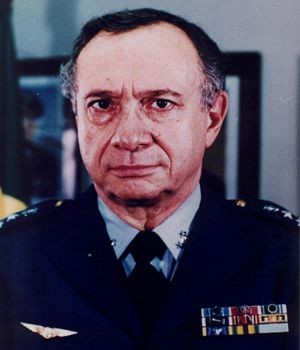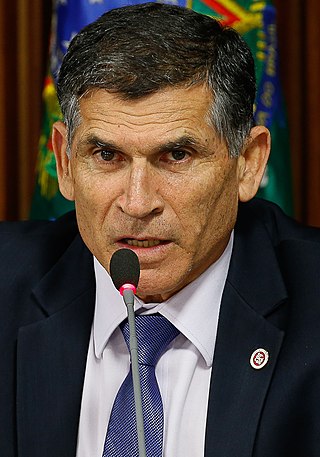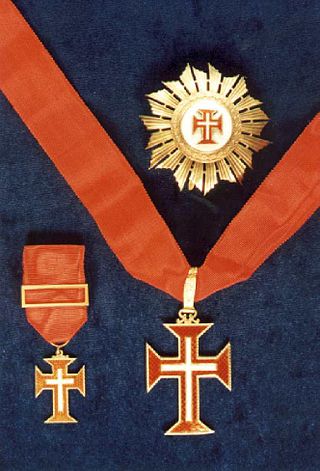
The Military Order of Saint Benedict of Aviz, previously to 1910 Royal Military Order of Saint Benedict of Aviz, previously to 1789 Knightsof Saint Benedict of Aviz or Friars of Santa Maria of Évora, is a Portuguese order of chivalry, founded in Portugal in 1146. It gave its name and coat of arms to the Aviz Dynasty that ruled Portugal between 1385 and 1580.

The Military Order of Christ is the former order of Knights Templar as it was reconstituted in Portugal. Before 1910, it was known as the Royal Military Order of Our Lord Jesus Christ, and the Order of the Knights of Our Lord Jesus Christ. It was founded in 1319, with the protection of King Denis of Portugal, after the Templars were abolished on 22 March 1312 by the papal bull, Vox in excelso, issued by Pope Clement V. King Denis refused to pursue and persecute the former knights as had occurred in most of the other sovereign states under the political influence of the Catholic Church.
A dynastic order, monarchical order, or house order is an order under royal patronage. Such an order is bestowed by, as a legitimate fons honorum, a sovereign or the head of a once-sovereign ruling family. These are often considered part of the cultural patrimony of the ruling family. Dynastic orders were often founded or maintained to reward service to a monarch or their subsequent dynasty.

The Ancient and Most Noble Military Order of the Tower and of the Sword, of the Valour, Loyalty and Merit, before 1910 Royal Military Order of the Tower and Sword, is a Portuguese order of knighthood and the pinnacle of the Portuguese honours system. It was created by King Afonso V in 1459. The order may be bestowed on people or on Portuguese municipalities. Private Anibal Milhais was the only Portuguese Army private to be awarded the Order of the Tower and the Sword for Valor, for his actions in Lys, Belgium during World War I.
The government of Macau confers honors every year in the form of decorations, medals and honorary titles.
The Royal Equestrian and Military Order of Saint Michael of the Wing is a Portuguese Roman Catholic dynastic order that is believed to have been founded in 1147 in the Alcobaça Monastery in Alcobaça, Portugal, by King Afonso I of Portugal, in commemoration of the Conquest of Santarém from the Moors in 1147. The name was chosen in honour of the military Saint Archangel Michael, who assisted in the victory in the shape of a wing in the sky.

The Order of Prince Henry is a Portuguese order of knighthood created on 2 June 1960, to commemorate the quincentenary of the death of the Portuguese infante Prince Henry the Navigator, one of the main initiators of the Age of Discovery. Minor reforms of the constitution of the Order occurred in 1962 and 1980.
This is a list of some of the modern orders, decorations and medals of Spain.

The Order of Merit is a Portuguese Honorific Order of civil merit intended to award those responsible for meritorious acts or services performed in the exercise of any functions, both in the public and the private sphere, which reveal self-sacrifice in favor of the community. The decorations are given by the President of the Portuguese Republic, in his role as the Grand-Master of the Portuguese Honorific Orders. The Order of Merit can be awarded, during life or posthumously, to both Portuguese and foreign citizens; it can also be awarded to localities or institutions that are legal persons governed by public law or of public utility. This order has been awarded to a number of people performing the most diverse functions such as ambassadors, businesspeople, military personnel, athletes and musicians.

Tércio Pacitti, São Paulo, Brazil was an electronic engineer and computer scientist in Brazil.
Paulo Bénard Guedes was the 127th Governor-General of Portuguese India. He was also a general of the Portuguese army.

The Military Valor Medal is a prestigious military decoration and the second highest honour in Portugal. Established on 2 October 1863, it is awarded for heroic deeds of extraordinary selflessness and bravery, or great moral courage and exceptional ability to make decisions, whether in war or peace, but always in circumstances where there is proven or suspected danger to life. The Medal is divided into three grades - Gold, Silver and Copper. The award of the Gold Medal confers the entitlement to wear a fourragère.
The Chilean honours system provides a means for the Government of Chile to reward gallantry, achievement, or service, by both Chileans and non-citizens. The honours system consists of three types of award: orders, decorations and medals. Membership of an Order is conferred to recognise merit in terms of achievement and service. Decorations are conferred to recognise specific deeds of gallantry, bravery, distinguished or meritorious service. Medals are conferred to recognise long and/or valuable service and/or good conduct. Awards to non-citizens are usually only made where the gallantry, achievement or service has advanced Chilean interests in some way. The honours conferred by the Chilean Republic can be divided into two groups: civil and military. Military honours are conferred by the different branches of the Armed Forces of Chile. Civil honours are conferred by the President of Chile or, in some instances, by the government minister relevant to the particular honour.

The following is a list of the orders, decorations, and medals of Brazil:

Divisional general Carlos Alberto dos Santos Cruz is a Brazilian military officer who previously held the post of Force Commander of the United Nations' peacekeeping force in the Democratic Republic of the Congo. He was appointed to this position by United Nations Secretary-General Ban Ki-moon on 17 May 2013 and replaced by Derrick Mbuyiselo Mgwebi on 29 December 2015. He was Minister-Secretary of Government of Brazil, nominated by President Jair Bolsonaro, from 1 January 2019 to 13 June 2019.

The Ordem Militar de Cristo, the full name of which is the Military Order of Our Knights of Lord Jesus Christ, is a Portuguese honorific Order which takes its name from the extinct Order of Christ (1834), which is given for distinguished service in the performance of functions in sovereign positions or public administration, and for the judiciary and diplomacy, which is seen as being particularly distinguished.
The Portuguese Red Cross Decorations is a special set of decorations recognized under Portuguese law, through the Ministry of Defense, and is intended to distinguish those who have rendered services to the Portuguese Red Cross to humanity.

Admiral Henrique Eduardo Passaláqua de Gouveia e Melo is a Portuguese Navy officer, currently serving as the Chief of the Naval Staff, since December 2021.
Order of Labor Merit, in 2007 renamed the Order of Labor Merit of Getúlio Vargas – Brazilian departmental decoration.
 War Cross (Class III) [lower-alpha 1] (Portuguese : Medalha da Cruz de Guerra), established on 30 November 1916 to reward acts of bravery and deeds performed in wartime. It could be awarded to military personnel and civilians as well as to foreign military personnel and civilians. It may also be awarded to military units and to towns 'that have collectively practiced feats of arms of exceptional value.' It is awarded in four classes. Award of the Gold (1st Class) confers entitlement to wear a fourragère. [3] : 17–20, 32
War Cross (Class III) [lower-alpha 1] (Portuguese : Medalha da Cruz de Guerra), established on 30 November 1916 to reward acts of bravery and deeds performed in wartime. It could be awarded to military personnel and civilians as well as to foreign military personnel and civilians. It may also be awarded to military units and to towns 'that have collectively practiced feats of arms of exceptional value.' It is awarded in four classes. Award of the Gold (1st Class) confers entitlement to wear a fourragère. [3] : 17–20, 32  Medal for Military Merit (Grand Cross) (GCMM) [lower-alpha 2] (Portuguese : Medalha de Mérito Militar), established on 28 May 1946 to reward military personnel for meritorious service as demonstrated by a display of exceptional qualities, military virtues, a spirit of sacrifice and selflessness, moral courage, bravery and loyalty that are deserving of public recognition. The medal was established in five classes - Grand Cross (Portuguese : Grã-Cruz) (for ministers and secretaries of military departments and generals), 1st Class (for Colonel and above with at least 20 years service), 2nd Class (for Captain-Lieutenant and above with at least 10 years of service), 3rd Class (for junior officers holding the rank of Captain or below and with at least 2 years service), and 4th class (non-commissioned officers and soldiers with at least 2 years service). [3] : 17–18, 22–23
Medal for Military Merit (Grand Cross) (GCMM) [lower-alpha 2] (Portuguese : Medalha de Mérito Militar), established on 28 May 1946 to reward military personnel for meritorious service as demonstrated by a display of exceptional qualities, military virtues, a spirit of sacrifice and selflessness, moral courage, bravery and loyalty that are deserving of public recognition. The medal was established in five classes - Grand Cross (Portuguese : Grã-Cruz) (for ministers and secretaries of military departments and generals), 1st Class (for Colonel and above with at least 20 years service), 2nd Class (for Captain-Lieutenant and above with at least 10 years of service), 3rd Class (for junior officers holding the rank of Captain or below and with at least 2 years service), and 4th class (non-commissioned officers and soldiers with at least 2 years service). [3] : 17–18, 22–23 









